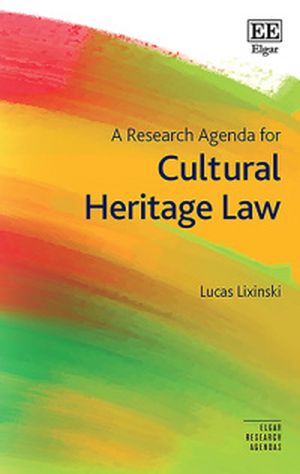
Elgar Research Agendas outline the future of research in each area. Leading scholars are given the space to explore their subject in provocative ways and map out the potential directions of travel. They are relevant but also visionary.
This Research Agenda recasts cultural heritage law, emphasising the importance of developing rigorous and socially engaged scholarly research in the field. It analyses tensions and methodologies, using the return of colonial cultural objects as a key case study.
Building on empirical insights as well as current legal scholarship, this book challenges assumptions about the role of cultural heritage law. Dissecting binaries such as international versus national, public versus private, and tangible versus intangible, Lucas Lixinski questions the foundations of the field before examining it through different theoretical lenses such as historicization and pragmatism. He engages with broader concerns in the legal discipline including human rights and the interests of local communities, and considers arguments in favour of and against cultural restitution. Ultimately, Lixinski argues that critical heritage law research must focus on interculturality and redistribution, and inspires the reader to leverage these ideas and tools for social justice.
Engaging and innovative, this book is a valuable resource for PhD researchers looking to take their studies beyond the status quo. Its novel reflections will also engage established academics in cultural heritage and art law, intellectual property law, public international law and critical heritage studies.